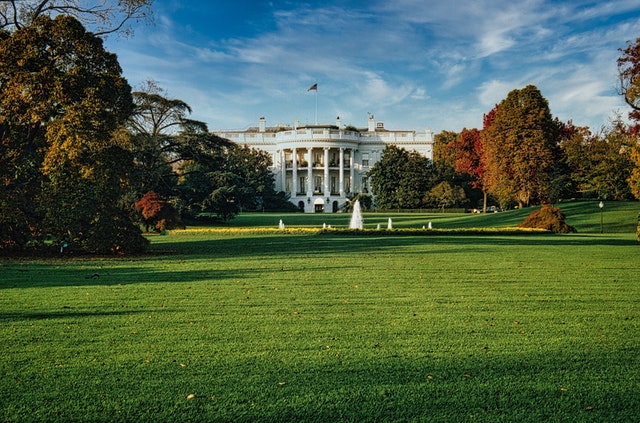Announcing the Country Reports on Human Rights Practices at a press conference, US Secretary of State Antony Blinken reiterated the US commitment to putting human rights at the centre of US foreign policy. Transparency and accountability are an integral part to this process, he said. “Human rights are interconnected, and deprivation of a right can fray the broader fabric of a society,” Blinken said.
It was observed that China and Russia were particularly emphasised in the press release. It was emphasised that government authorities in China “commit crimes against humanity, including genocide, torture and forced sterilisation against Uyghur Muslims and other religious and ethnic minorities”.
It was also noted that the Russian government targeted political opponents and peaceful demonstrators, and that corruption was widespread. In Venezuela, it was announced that the corruption of the Nicolas Maduro administration has increased the humanitarian crisis experienced by the people.
Blinken said that “One of the fundamental principles of human rights is that they are universal. Everyone has these rights, regardless of where they were born, what they believe, who they love. There is no hierarchy in human rights that makes some rights more important than others.”
Turkey 2020 Human Rights Report
The report states that “fundamental rights have been restricted and the rule of law has been compromised and jeopardised” following the enactment of a comprehensive anti-terrorism law in Turkey in 2018. It also states that since the attempted coup of 15 July 2016, more than 60,000 police officers and soldiers, more than 125,000 civil servants and more than a third of the judiciary have been dismissed; more than 90,000 citizens have been arrested; 1,500 civil society organisations have been closed down on “terrorism-related” charges, mainly due to their links with the cleric Fethullah Gülen movement.
The report states that “significant human rights violations in Turkey include the following:
- Arbitrary killings,
- Suspicious deaths in custody,
- Forced disappearances,
- Torture and other cruel, inhuman or degrading treatment or punishment,
- Poor physical and administrative conditions in detention centres and prisons,
- Arbitrary arrests and detentions,
- Arrest procedures and mistreatment of detainees,
- Rejection of requests for a fair trial,
- Trials without evidence, unfair and unlawful trials, lack of the right to a fair trial,
- Broad application of anti-terrorism laws to dissidents,
- The non-implementation of the judgements of the European Court of Human Rights and the State of Emergency Commission’s violation of the right to a fair trial, lack of transparency and slow action,
- Unjust confiscation of property and assets,
- Arbitrary and unlawful infringement of privacy, family, housing or communication rights,
- Mistreatment in internal separations
- Problems with freedom of expression, including in the press, violence and harassment, censorship or content restrictions,
- Violations related to internet freedom,
- Violations related to academic freedom and cultural activities,
- Freedom of participation in the political process and problems related to elections,
- Lack of transparency and corruption in government,
- Government attitudes towards investigations by international organizations and civil society into allegations of human rights violations,
- Discrimination, social exploitation and human trafficking,
- Problems with labor rights,
- The arbitrary arrest and continued detention of tens of thousands of people, including opposition politicians and former MPs, lawyers, journalists, human rights defenders and US Embassy staff, on charges of links to ‘terrorist’ groups or for making peaceful legal statements,
- The presence of political prisoners, including elected officials,
- Politically motivated reprisals against persons outside the country,
- Significant problems with judicial independence,
- Severe restrictions on freedom of expression, press and internet, including violence and intimidation against journalists, closure of media outlets and unjustified arrests or criminal prosecutions of journalists and others for criticising government policies or officials, censorship, site blocking and the existence of criminal defamation laws,
- Severe restrictions on assembly, association and travel,
- Some cases of refoulment of refugees,
- Violence against women and lesbian, gay, bisexual, transgender and intersex persons and other members of minorities,
- The government has taken few steps to investigate, prosecute and punish security forces and other officials accused of human rights violations; immunity from prosecution remains a problem,
- The government’s failure to provide information on efforts to investigate or prosecute personnel for accidental or unintentional civilian deaths related to counter-terrorism operations.”
The report noted that it was difficult for MIT personnel to be investigated for human rights violations under the law. Regarding disappearances, the report refers to the abduction of a Catholic couple in the village of Kovankaya which revealed by HDP MP Tuma Çelik, the disappearance of Hürmüz Diril and the abduction and torture of Gökhan Türkmen.
The report mentions as giving examples of arbitrary killings, other unlawful or politically motivated killings, disappearances, torture and other cruel, inhuman or degrading treatment or punishment in Turkey. In relation to these issues, reference is made to the law on the National Intelligence Organisation (MIT) and it is emphasised that according to the law MIT employees are exempt from prosecution as “security officers involved in the fight against terrorism”.
The report includes some news on deaths related to COVID-19 in prisons within the scope of violations related to detention centre and prison conditions. It is also stated that 300 children are in prison with their mothers.
The report stated that in the context of arbitrary arrests and detentions, the courts made decisions on directives from President Erdoğan and that Lieutenant General Metin İyidil was re-arrested on President Erdoğan’s directive in relation to 15 July. Again, in the report, within the framework of arbitrary arrests, arbitrary arrests of HDP members were stated.
The independence of the judiciary in relation to the rejection of fair trial requests was addressed in the report. Here, Osman Kavala’s case and process is analysed as an example.
You can access the Turkey section of the 2020 US Human Rights Report here:





